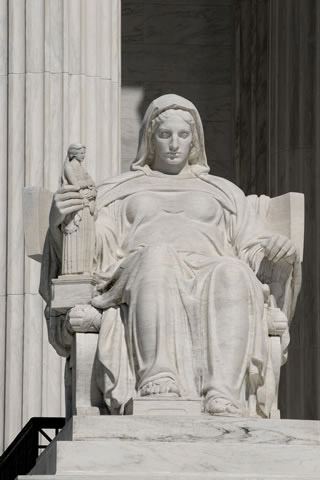Sightings
Jo Freeman: There’s Plenty To Do at the RNC – If You Have the Right Credentials
by Jo Freeman
Every national nominating convention has plenty of auxiliary events, some authorized, some not. Getting space can be a challenge; getting the word out even more so. But they do it nonetheless. Press were given a RNC 2024 Master Event Calendar, which was updated a few days later. Events began on Sunday and ended on Thursday. The actual convention sessions were just one item on the list. The calendar said if an event was Open or Closed to press, and also whom to contact to register. I’m going to describe some of the events, including a couple I went to, and a couple I was turned away from.
Since my focus is on women, I obviously wanted to go to those events – if I could.
The National Federation of Republican Women is the largest grassroots Republican women's organization in the country with hundreds of clubs. Founded in 1938, its members made the phone calls and knocked on the doors that elected Republican candidates for decades. It’s Tuesday luncheon featured Arkansas Governor Sarah Sanders. The Master Calendar said it was SOLD OUT and they wouldn’t let me in. I was able to get into their lounge at the Fiserv Forum Wednesday evening, where I was repeatedly asked if I was a member, and if not, would I join. “I’m press,” I said. “I can’t join anything partisan.” I then said: “What brings you here?” On hearing that, finding anyone willing to chat with me was like pulling teeth.
Moms for Liberty met in a concert hall that afternoon. I had pre-registered, and I got in. From high in a balcony seat I listened to several people talk about the evils of transgenderism. It’s webpage says WE BELIEVE Power Belongs to the People. Sound Familiar? With a focus is on parental rights, it wants to “STOP WOKE indoctrination.”
Tuesday I went to “The New Mavericks” reception co-hosted by the Black Republican Mayors Association and the Georgia Republican Party. They honored Sen. Tim Scott, four Congressmen and two Georgia delegates – all male. There was only one mayor on stage, from Aurora, IL. The chair of the Georgia Republican Party was the one white man on the stage. At that event, women served; they didn’t speak. The RNC reported that 55 delegates to the 2024 convention are Black, up from 18 in 2016.
I missed the Independent Women’s Forum toast to “Women Who Make Our Country Great” because I went to Convention Fest: The Official Delegate Experience, which was held in the streets outside the Fiserve Forum and Baird Hall as well as some space inside Baird. To get to that one you not only needed a credential of some sort, but a USSS pass (which I have).
Concerned Women for America parked its pink bus across from the Baird Center the week before the RNC. No one was home. When Convention Fest opened on Tuesday afternoon, they set up a pink tent, from which its leaders preached to whomever passed by. It calls itself “the nation’s largest public policy women’s organization” but its focus is evangelical Christian. The slogan on the side of its pink bus captures this emphasis: “She Prays, She Votes.” A prayer precedes each sermon.
 US Department of Justice: Leading Cancer Treatment Center Admits to Antitrust Crime and Agrees to Pay $100 Million Criminal Penalty
US Department of Justice: Leading Cancer Treatment Center Admits to Antitrust Crime and Agrees to Pay $100 Million Criminal Penalty
“Today’s resolution, with one of the largest independent oncology groups in the United States, is a significant step toward ensuring that cancer patients in Southwest Florida are afforded the benefits of competition for life-saving treatments,” said Assistant Attorney General Makan Delrahim of the Department of Justice’s Antitrust Division. “For almost two decades, FCS and its co-conspirators agreed to cheat by limiting treatment options available to cancer patients in order to line their pockets. The Antitrust Division is continuing its investigation to ensure that all responsible participants are held accountable to the maximum extent possible.” more »
 On Monday, May 4th, Draw Up Your Chairs: The Supreme Court Televised On C-Span For the First Time
On Monday, May 4th, Draw Up Your Chairs: The Supreme Court Televised On C-Span For the First Time
"C-SPAN is committing to airing live each of the Supreme Court's just-announced schedule of oral arguments for May, which will be held by teleconference. The audio of the arguments will be accessible live via one of the C-SPAN TV networks, online via C-SPAN.org, and on the free C-SPAN Radio app, which will allow them to be heard via anyone's cell phone. Photo and name IDs of the justices and counsel will accompany the audio feed on television; name IDs will be provided on radio." Editor's Note: For those of you with children and grandchildren interested in science and the future, do not forget NASA station, NASA.gov! more »
 A Johns Hopkins Ethics Nurse Discusses Difficult Decisions, Challenges and Moral Distress: "We know you are overworked, understaffed, possibly heartbroken and anxious, but always courageous"
A Johns Hopkins Ethics Nurse Discusses Difficult Decisions, Challenges and Moral Distress: "We know you are overworked, understaffed, possibly heartbroken and anxious, but always courageous"
"Nurses' roles are now more important than ever. Nurses are often the last thread of compassion for patients. They're the ones doing the screenings, taking care of the critically ill, implementing triage protocols, communicating to families, and attending to the dying. Nurses in every role are impacted. They're being asked to work in areas of the hospital that aren't their normal specialty. They're providing telehealth consultations. They're being redeployed to learn new skills and take new roles — as safety officers, and taking care of critically ill patients. They're making triage plans operational. We've had to reallocate our resources in profound ways, and nurses are innovating and leading in the midst of the crisis." more »
 Jean-Jacques Lequeu: Drawings From Bibliothèque Nationale de France, Animated Self-portraits, Plans for Revolutionary Monuments, Explorations of the Body
Jean-Jacques Lequeu: Drawings From Bibliothèque Nationale de France, Animated Self-portraits, Plans for Revolutionary Monuments, Explorations of the Body
Lequeu defined himself as an architect and began his career working on building sites, he spent the majority of his life as a government draftsman shifting between bureaucratic offices before being forced to retire on a meager pension. His gift to the Royal Library reflected a hidden dimension of Lequeu’s draftsmanship. Throughout his life, he worked on his own, producing animated self-portraits, plans for revolutionary monuments, teaching manuals, explorations of the body, and over one hundred designs for visionary architectural projects. The drawings in his portfolio evince remarkable skill and creativity, an inventiveness inspired by both classical and contemporary writings, and the artist’s own vivid imagination. more »






